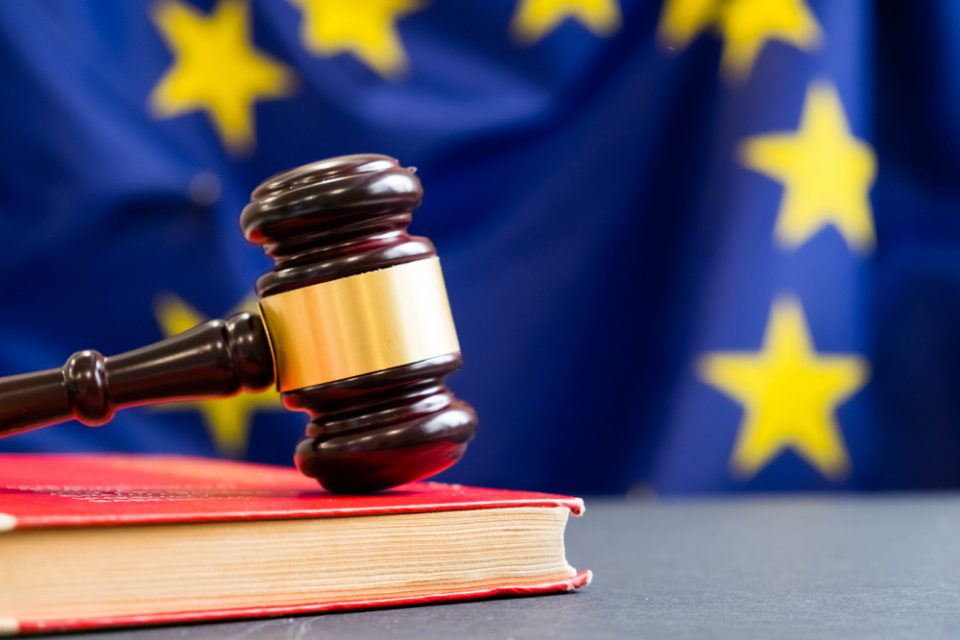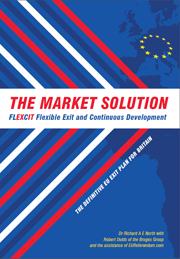The EU’s hypocrisy on acquired rights

Regular CIB contributor Nigel Moore explains the EU’s hypocrisy on acquired rights. The EU demands acquired rights for EU citizens in the UK after Brexit, whilst refusing to grant the UK any such rights in return – even where they would be mutually beneficial. Once again, the EU’s behaviour falls far short of its self-proclaimed obligation to foster ‘close and peaceful relations based on cooperation’ with neighbouring countries.
The EU has swung a wrecking ball at an orderly Brexit process. By insisting on the unequal Withdrawal Agreement, the EU have imposed their own perceived rights without practical reciprocation in the UK’s favour. They demand acquired rights for EU citizens in the UK after Brexit, whilst taking away existing acquired UK rights across many fields of activity. This is potentially threatening to the UK’s national interest and ultimately likely to be counter-productive not only to trade, but also to amicable future relations between the UK and the EU.
What are acquired rights?
Also known as ‘grandfather rights’, acquired rights are often used to allow an existing arrangement to continue when legal or regulatory requirements change. Thus, an existing (now non-compliant) product continues to be allowed, although there may be restrictive conditions imposed, such as a time limit for non-compliance, or use in existing applications or projects only.
The EU often makes practical use of acquired rights to accommodate existing products that would otherwise suddenly cease to be saleable within the Single Market, and to provide transitional arrangements. Such transitional arrangements can exist for several years until it becomes economic to fully implement the mandatory changes. Some requirements may never be implemented and national variations are included to accommodate this situation.
Acquired rights and Brexit
Brexit represents a change of relationship between the EU and the UK; mainly to serve political aims. However, nobody’s interests are served by disrupting existing frictionless trading and other close working relationships. Some application of acquired rights to EU laws would therefore be appropriate, even if only temporarily (see How Legal Fictions can avoid a no-deal Brexit).
However, the EU has chosen not to do this. Rather than accept that Brexit is a unique event, requiring a pragmatic and flexible response, the EU has chosen to uncompromisingly treat the UK just as it would any other third country. It has chosen to ignore the existence of a close prior relationship giving rise to acquired rights for both parties.
As can be seen in the EU’s Brexit preparedness notices (for example, for industrial products or Customs and Indirect Taxation), in the event of a no-deal there are no UK acquired rights. It is effectively a lose-lose situation, and any transitional arrangements are for the EU’s benefit only. Naturally, some acceptance of UK acquired rights by the EU would have resulted in a very different – and potentially much more politically acceptable – Withdrawal Agreement. Such flexibility by the EU would also have helped facilitate a more positive approach to negotiations on the future relationship.
Uncompromisingly inflexible
The treatment of Notified Bodies (Nobos) and mutual recognition of standards and conformity assessment show how uncompromisingly inflexible the EU’s approach is. Notified Bodies are independent accredited organisations that carry out mandatory third-party product conformity assessments, enabling those products to be placed on the Single Market. Currently, UK-based Nobos are accredited with relevant competences, and are listed on the EU’s NANDO database. After Brexit, these Nobos will cease to be accredited, meaning that they cannot carry on work within the Single Market or on products destined for it. Yet non-EU Nobos based in Norway (an EEA member), plus Switzerland and Turkey (non-EEA members) are accredited.
The free circulation of non-harmonised products within the Single Market (i.e. where there are no EU Regulations setting common standards) relies on the ‘mutual recognition principle’. This means that any product that can be legally sold in the producing country automatically has the right to be sold in other Member States, regardless of local standards and without further conformity assessment. After Brexit, mutual recognition of UK-sourced products ceases, and either EU or local (Member State) regulations will apply (for further analysis of the implications see Brexit: mutually assured distraction).
Perhaps the UK negotiators did try to protect the UK’s interests and get some acquired rights accepted by the EU, even for an interim period. However, this would require the EU to be helpful, perhaps involving some quid pro quo, and the UK negotiators to have relevant industry knowledge of working with EU regulations and World Trade Organization principles. Reading between the lines of the official guidance produced by our Government and the European Commission, it appears that little or no consideration has been given to the disruption, extra bureaucracy and costs involved to business here or in the EU, especially in the short-term.
The EU’s Approach is inconsistent, illogical and potentially unlawful
A no-deal outcome from Brexit represents a major failure by the EU to address grandfather or acquired rights in respect of the UK. Their use of rights in the Withdrawal Agreement is highly selective, illogical and inconsistent. The UK has been forced to swallow the EU’s demands (for example on acquired EU citizens’ rights), whilst being denied such rights to facilitate continued free trade.
The EU has in effect created special obligations for the UK after Brexit whilst refusing to give anything in return, even where a continuation of the status quo would be mutually beneficial. The EU’s actions violate their own laws, treaty obligations and rules. This is far from the behaviour to be expected towards a long-standing friendly neighbour.






